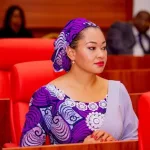Muhammad Sani Abdullahi, Deputy Governor of Nigeria’s Central Bank, unveiled projections indicating a rise in Nigeria’s inflation rate.
Abdullahi’s insights, disclosed during an event at London’s CITI-CEEMA Macro Conference on March 20, 2024, painted a concerning picture of the country’s economic landscape.
Join our WhatsApp ChannelHighlighting the driving forces behind this surge, Abdullahi pointed to three pivotal factors: soaring energy expenses, the repercussions of exchange rate volatility, and the persisting shadow of insecurity.
He stated, “Headline inflation is expected to rise to 32.63% in March 2024 due to high energy prices, exchange rate passthrough, and insecurity impacting food production and prices.”
The Central Bank, however, holds an optimistic outlook, foreseeing a turnaround in the inflation trajectory commencing May 2024. This optimism is underpinned by a series of strategic initiatives aimed at addressing the inflationary pressures.
These measures encompass adopting an Inflation Targeting Framework, intensified communication strategies, and a shift towards a tighter monetary policy stance.
READ ALSO: Consumer Inflation In South Africa Hits 5.6%
Central to these efforts is the significant adjustment in the Monetary Policy Rate (MPR), witnessing an increase of 400 basis points to 22.75%. Additionally, the Cash Reserve Ratio (CRR) has been recalibrated to 45% from its previous 32.5%, accompanied by adjustments in the asymmetric corridor surrounding the MPR. These adjustments signal a resolute stance in managing inflation expectations.
Despite these measures, Nigeria’s inflation rate surged to 31.70% in February 2024, marking a notable increase from 29.90% recorded in January of the same year. This spike defied the hike in the MPR to an unprecedented 22.75%, indicating the complexity of the economic challenges at hand.
Member of Nigeria’s Monetary Policy Committee (MPC), Murtala Sabo Sagagi, underscored the structural impediments within Nigeria’s economy, asserting that traditional monetary policy tools face significant limitations in curbing Nigeria’s inflation without addressing underlying issues such as insecurity and food shortages. Sagagi emphasized the necessity of a comprehensive roadmap for economic and social rejuvenation to effectively combat inflationary pressures.
As Nigeria grapples with these multifaceted challenges, the efficacy of the Central Bank’s measures remains under scrutiny, with stakeholders closely monitoring the unfolding economic landscape amidst hopes for stability and resilience in the face of adversity.
Emmanuel Ochayi is a journalist. He is a graduate of the University of Lagos, School of first choice and the nations pride. Emmanuel is keen on exploring writing angles in different areas, including Business, climate change, politics, Education, and others.



















Follow Us